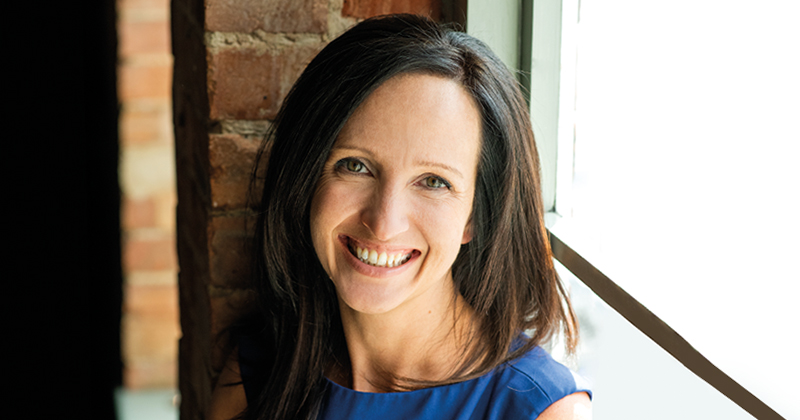Ofsted has set out a raft of changes today following the biggest consultation in its history.
These include reforming its inspection framework ahead of the rollout of report cards, which will be tailored to FE and skills, as well as a new academy for training inspectors.
The ‘Big Listen’ consultation sought the views of teaching staff, education organisations and parents on schools, safeguarding, SEND, teacher training, social care and further education.
Some 16,033 people responded to the consultation, almost 3,700 of which answered questions about FE and skills.
Sir Martyn Oliver, Ofsted’s chief inspector, said: “You have spoken, we have listened, and now it is time to act.”
Here is what you need to know…
1. New framework and report cards
Ofsted has pledged to consult “later this academic year” on creating a reformed education inspection framework (EIF) for schools, early years and FE and skills.
This will heed lessons from the Big Listen and be necessary to accommodate the government’s pledge to rollout report cards from September 2025, replacing single-phrase overall grades.
Critically, both the reformed inspection framework and report cards will be “tailored to FE and skills” (full story here).
Ofsted said it wanted to introduce “rubrics” – a type of scoring guide – that offer “clear criteria for inspections and can support leaders to self-evaluate their practice” as part of the reform.
The inspectorate also wants to make inspection more collaborative and supportive, a key issue flagged through the consultation, by using these “rubrics” to guide chats between inspectors and leaders about a provider’s strengths and areas for improvement.
Ofsted said its consultation will include the size of inspection teams and notice periods, to make sure these are “proportionate for different types of providers”.
2. Reports will show ‘area insights’
The report cards will include “area insights”. A new service will be launched to “visualise local area data” across all areas Ofsted inspects and regulates, to help inspectors understand local context.
Ofsted wants the service to set out what it is like to be a child in any area, from childminder provision and both school phases, all the way up to a post-16 college or training provider.
The service will also help inspectors to judge how providers are contributing to meeting the skills needs of local, regional and national economies.
3. HTQ and part-time 14-16 provision inspections?
Ofsted said it will call on the government to amend legislation so that the watchdog can inspect providers offering higher technical qualifications – a major new skills qualification currently outside of Ofsted’s remit.
“We should inspect these providers, who spend public money, so that they are accountable and standards are high,” Ofsted said.
Legislation also currently does not allow Ofsted to inspect education for 14- to 16-year-olds delivered part-time in colleges (where the student is not a pupil registered at a school), despite full-time students of this age in colleges being in scope.
The watchdog said these students will “often be some of the most disadvantaged and vulnerable learners, including those excluded from school, unaccompanied asylum seekers and home-educated learners”, adding that it will discuss broadening its scope to inspect this part-time provision with government.
4. Ofsted Academy to train staff
The inspectorate plans to launch a service called “Ofsted Academy” this Autumn.
It said this would collate all its induction, training, learning, development and “good practice work” in a single place and “transform” how it recruits and trains staff, “including improving our recruitment of inspectors from the FE and skills sector”.
The resource will also include face-to-face training and development and will develop an “insights library” to share exemplary practice in the sectors it inspects and regulates.
“As part of the Academy, we will introduce secondments for inspectors to spend time working in providers. This will make sure their practice remains current, especially focusing on working across groups of providers,” Ofsted said.
5. New national hubs and reference groups
Ofsted said its current regional model had “created inconsistency” in how it carries out some of its work.
So, it is setting up six national hubs, led by regional directors, each specialising in a specific area of its work.
For instance, one hub will centralise all complaints about Ofsted, which will be investigated independently of their region of origin.
Other hubs will focus on areas such as inspection welfare, support and guidance, quality assurance and professional standards and “provider intelligence and area insights”.
Ofsted said it had also set up seven external reference groups, across areas such as curriculum, teaching and assessment, behaviour and attendance and inclusion.
These will provide independent advice and challenge and share ideas and feedback, including on its frameworks.
6. Sharing the evidence base
In a bid to increase transparency, Ofsted said it will conduct user research to look at recording and transcribing the final feedback meetings and sharing these with leaders.
Ofsted has also signalled a willingness to “better share the evidence that underpins our reports directly with leaders”, to help heads understand how it reaches its conclusions.
7. Complaint changes made permanent
In response to allegations that its complaints process often felt like it was marking its own homework, Ofsted has piloted complaints panels for the schools and early years sectors.
These include external sector representatives and they review whether it has handled a sample of complaints fairly and in line with its policy.
Ofsted said it will make this a permanent feature of its complaints processes across all areas.
8. Culture change needed
The inspectorate said its “most challenging” Big Listen feedback was about its culture.
A NatCen survey, commissioned by Ofsted, of 4,349 parents and carers, found a quarter disagreed that the inspectorate could be trusted. Just 49 per cent said it could be.
And while over half (56 per cent) of FE providers said Ofsted could be trusted, 27 per cent thought the opposite, according to findings by IFF Research.
The inspectorate said that going forward, it will “foster a culture of integrity in which we always treat people with professionalism, courtesy, empathy and respect”.















